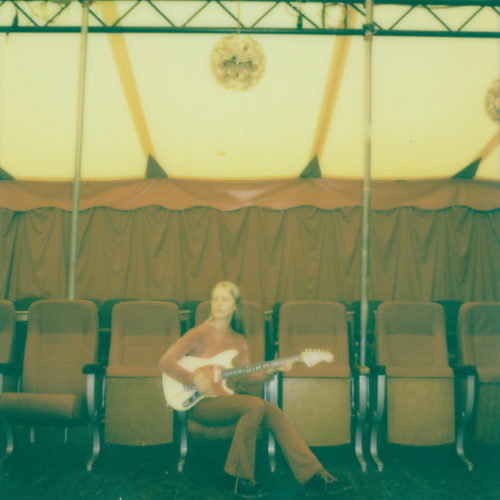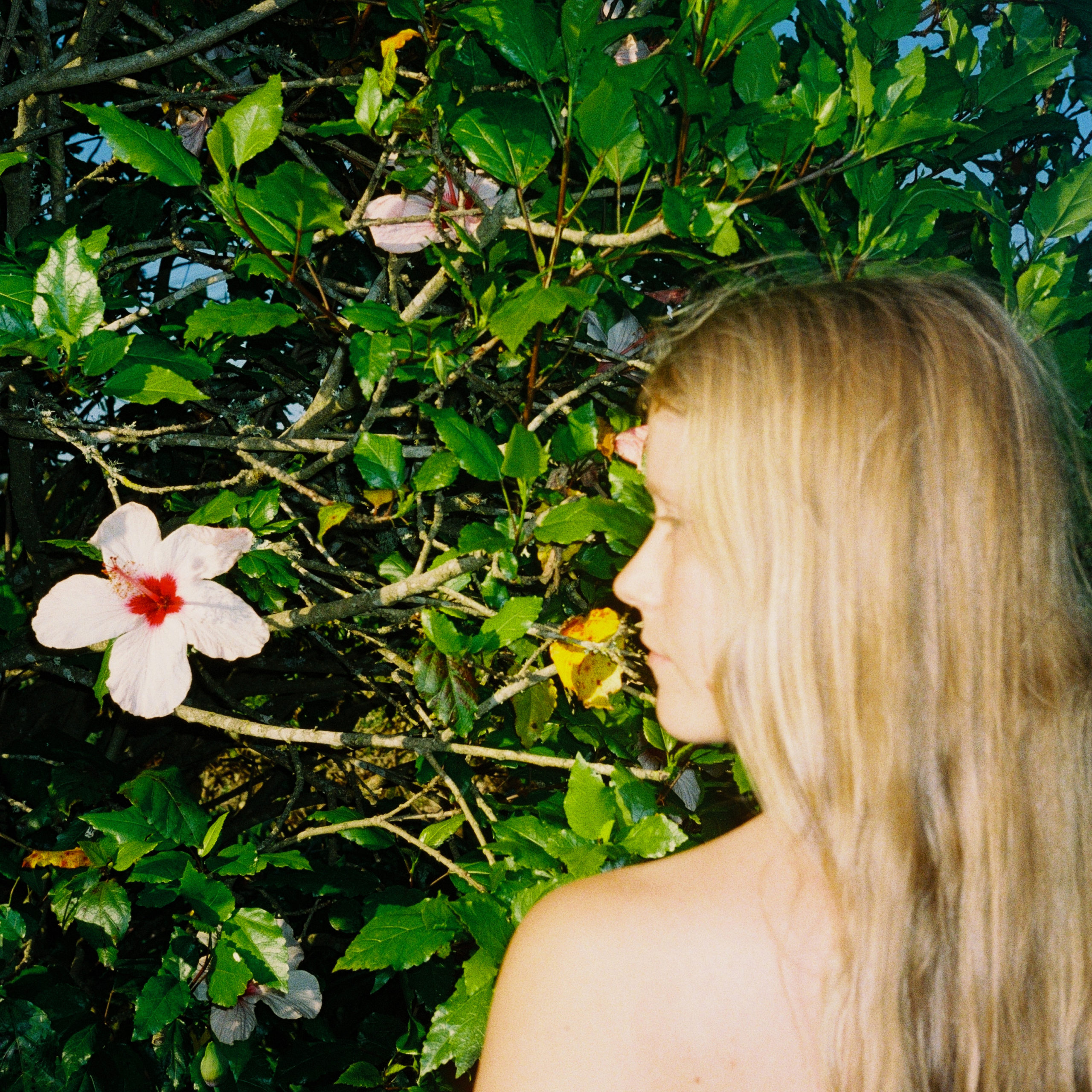
Oblivion
—
Release on 24 October 2025
—
Nettwerk Music Group



As the eyes open and the world first blinks to life, there it is: oblivion. Rather than destruction or collapse, Alice Phoebe Lou’s oblivion is a deep, inky place where motes of softly burning potential gently drift into life. The South African-born, Europe-based singer-songwriter reached past the torrential noise of modern life and into another space to pull out luminous melodies and intimate lyrics, turning them into playful, profound songs that honor the sublime simplicity of her busking years. “Instead of overthinking the outcome and the judgment, these songs are just creating for myself, a coming home,” she says of Oblivion (due October 24 via Nettwerk Music Group). “Tapping into this unawareness of unconsciousness sounds like bliss. Oblivion is a place where you can forget what others see in you and find your true essence.”
Over the course of five impeccable LPs, Alice Phoebe Lou established herself as a musical force, continuing to unveil new facets to her expressive vocals and beguiling songwriting. While that evolution drew rave reviews from critics and her growing fanbase (now totaling more than 2.1 million monthly listeners on Spotify), the singer-songwriter was starting to feel the pressure of needing to constantly build the next stage. And after 2023’s grand Shelter, that seemed an especially daunting challenge. “In this industry there’s an emphasis on needing to go bigger, to one-up yourself,” Alice Phoebe Lou says. “But instead I returned to my roots of playing on the street. These songs come from deep inside my subconscious, dreams, the oblivion of sleep, the place where you can access your deepest thoughts, desires, memories, and true feelings without thinking about the way it’ll be received.”
That renewed confidence is immediately apparent on songs like “Pretender”, a Joni Mitchell and Nick Drake-indebted bit of gamboling self-analysis. While previous albums may have reveled in immaculately layered production, here Phoebe Lou flutters over a simple acoustic strum—the listener placed in the room, in the moment with the lyrical self-appraisal. Beyond the change in musical scope, the song also represents Oblivion’s shift in storytelling. “Glow and Shelter were very much working through my traumas and finding a home within myself, Oblivion is me looking at my faults and saying them out loud,” Alice Phoebe Lou says. “And ‘Pretender’ shows that no longer feeling the need to know everything and have all the answers is such a relief.” The song’s embrace of humility, of flaws, of finding oneself is inspiring but fittingly subtle, a warm breeze of melody.
The songs of Oblivion flow in an almost dreamlike state, melodies looping like concentric circles and wordless harmonies floating through the mix—likely the result of a dedicated stream of consciousness songwriting process. “I didn’t allow myself time to overthink each line, or to think about how I would be interpreted,” Alice Phoebe Lou says. “Instead of closing off, making myself smaller, extinguishing myself, I’m finding a way to find the strength to shine and take control of my expression.”
Album highlight “Sparkle” continues that emotional exploration, Alice Phoebe Lou seated at a piano, her relaxed vocals making the track pass for a jazz standard. The track exemplifies the snug production style of Oblivion, the weight of the keys practically audible with each chord change, a light crackle in the back of the vocal track like you’re in the room. “And if you should see me as I sparkle in the night,” she sings in soft but certain tones. “Don’t be a fool, it’s not for you/ It is for the divine.”
Elsewhere, album highlight “Mind Reader” shows Alice Phoebe Lou’s deft touch, adding light flourishes of electric guitar over the acoustic mix to add an ethereal ring to a moment of buoyant hope. “I’m not a mind reader/ But I will try for you,” she sighs. While a less confident writer may have struggled to find some definitive lesson from a relationship with difficult communication, this song expresses it honestly and finds meaning in the work: “Take a look at how far we’ve come/ There’s so much more to feel.”
Recorded in Berlin’s La Pot Studio and co-produced by longtime collaborators and friends Ziv Yamin and Dekel Adin, Oblivion is a masterclass in push-and-pull subtlety; Alice Phoebe Lou’s voice feels lit by a spotlight and placed on a pedestal even as the songs live in quiet, confident moments. “It all just came together so quickly, and the intention was so clear,” she says. “Sometimes I’d hit a note that a few years ago would have completely ruled a take out, but I wanted the songs to to be these imperfect little things. There’s something very sacred and beautiful about trying to let the creativity happen without thinking about what the audience will think.”
That free-flowing nature drives songs like the golden-toned “Darling”, each new guitar chord floating into place like a magical staircase. The track also indulges in a rare instance of studio wizardry, more layers of Alice Phoebe Lou’s wordless vocals flitting into frame like harmonic butterflies. The title track takes that layered vocal technique a step further, burying the harmonies in a light distortion and bass-y pitch shift, daubing the piano etudes in a submarine dizziness. Lyrically, “Oblivion” pushes deeper into the dream world, plumbing the mystic darkness of the album’s title: “No time no space/ I’m in between/ When I opened my eyes she was there/ And her skin was golden.” In an example of the album’s brilliant sequencing, that psychedelic swirl is followed by the direct calls of “You and I”, where Alice Phoebe Lou insists on open communication and “all of your love.”
Throughout its ethereal trek, Oblivion drinks in the unknown and holds your hand as you wade into that mysterious depth. Across its stripped-back arrangements, Alice Phoebe Lou turns vulnerability into a mythic strength, contorting uncertainty and conflicted emotions into intimate friends. “These songs are coming from the darker places in yourself, that place of holding something inside and then letting it go, even if it’s embarrassing or vulnerable,” she says. “Oblivion leans into the idea of allowing yourself to let things overflow in order to feel them, work through them, and come out on the other side.” Alice Phoebe Lou invites listeners to explore both her oblivion and their own as well, illuminating a long, iridescent path of the soul and coming out stronger on the other side.